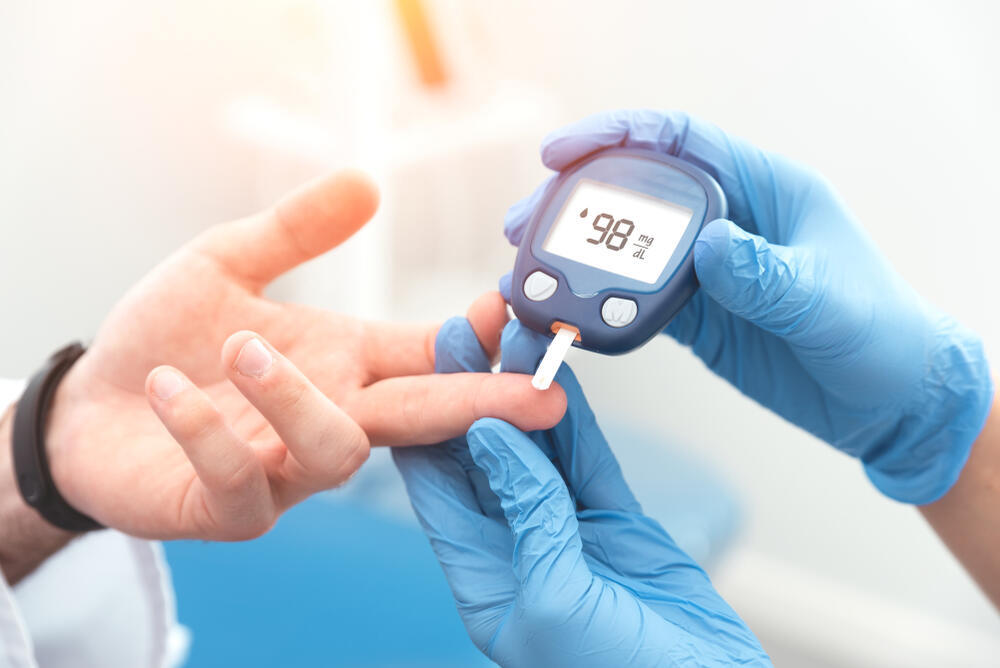Diabetes is an increasingly prevalent disease worldwide, affecting one in 12 Israelis. Prediabetes is even more common, affecting about half of Americans and more than a quarter of Israeli adults, but often unaware of it.
While diet and lifestyle undoubtedly play a major role in the development of diabetes and pre-diabetes, ultra-processed foods appear to hasten the progression of diabetes. Recent studies have further strengthened the link between the consumption of these foods and the onset of diabetes and its various complications, highlighting hidden health hazards lurking in our kitchens and delivery services.
How do these mechanisms affect us, why do they affect people with diabetes in particular, and what can be done to address this issue?
A new study published in the American Journal of Clinical Nutrition looked at the relationship between ultra-processed food intake and diabetic complications in 5,685 British people with type 2 diabetes. Participants completed dietary questionnaires and provided medical data for an average of 12.5 years, and the results are disturbing. Ultra-processed food intake was found to significantly worsen diabetic complications, affecting the kidneys, retina, and peripheral nervous system. Previous studies have shown that diabetics who consume these foods are more likely to suffer heart attacks and die. As for sugary drinks, previous studies have shown that they double consumers' risk of developing prediabetes and diabetes.
Ultra-processed foods include industrial foods with long ingredient lists that are packed with sugar, fat, salt and industrially processed ingredients. These ingredients include flavorings, colors, emulsifiers, preservatives and substances designed to make foods cheaper, more appealing and last longer than expensive ingredients that previous generations were never exposed to.
Nearly all foods advertised and sold in convenience stores, and more than half of the foods in supermarkets, are ultra-processed. This includes not only sweets, snacks, and cookies, but also fast foods, ready-made meals, most beverages, industrial breads, processed meat products (non-fresh meat products such as sausages, hot dogs, pastrami, chicken nuggets, canned meats, etc.), breakfast cereals, and baby products.
For those with pre-diabetes or diabetes already, the consumption of ultra-processed foods is particularly harmful, and the reasons are clear: they are full of processed carbohydrates that cause blood sugar levels to rise sharply, negatively affecting blood sugar balancing mechanisms that are dysfunctional in these circumstances. Industrial processing reduces particle size and removes or destroys substances such as dietary fiber that slow down the absorption of carbohydrates in whole foods.
When discussing eating habits with patients, we find that many consume these foods regularly, often throughout the day, in place of real food. For diabetics who use continuous glucose monitors, we can observe blood glucose levels spike shortly after consuming these foods.
Ultra-processed food manufacturers know that once you start eating their products, it's hard to stop, and consumers end up eating much more than they intended. The advertising, attractive packaging, low prices, minimal effort required to consume, textures and flavors all encourage us to eat larger amounts than we would with real food.
Manufacturers conduct experiments to identify the perfect combination of texture, taste and appearance that will keep testers coming back for more and more. In other words, to identify the most addictive products. “You won't be able to stop eating them,” advertisers claim.
In recent months, I have been participating with a group of scientists and doctors in meetings to draft a document for the World Health Organization aimed at recognizing our addiction to ultra-processed foods. Research shows that the mechanisms of addiction when ingesting these foods are similar to those of other substances such as alcohol or drugs, with similar symptoms: loss of control, distress and serious health consequences.
For people with diabetes, diet directly impacts blood sugar balance, which is crucial to avoid complications of the disease, so the harms of a reliance on ultra-processed foods are particularly significant in this population.
One area that has yet to be explored is the impact of targeted treatments for addiction to ultra-processed foods on diabetes management. Improving how we handle these foods may also improve quality of life and diabetes balance.
A study on this topic will soon begin at the Rambam Healthcare Campus in collaboration with the Diabetes Service at the Institute of Endocrinology, Diabetes and Metabolism, Dr. Yael Picker, a psychiatrist specializing in eating disorders, and other researchers. The study, which is currently recruiting participants, will involve patients with type 2 diabetes and food addiction. It is hoped that the research will improve understanding of mechanisms and strategies to tackle this challenge that puts the health of many people at risk.




